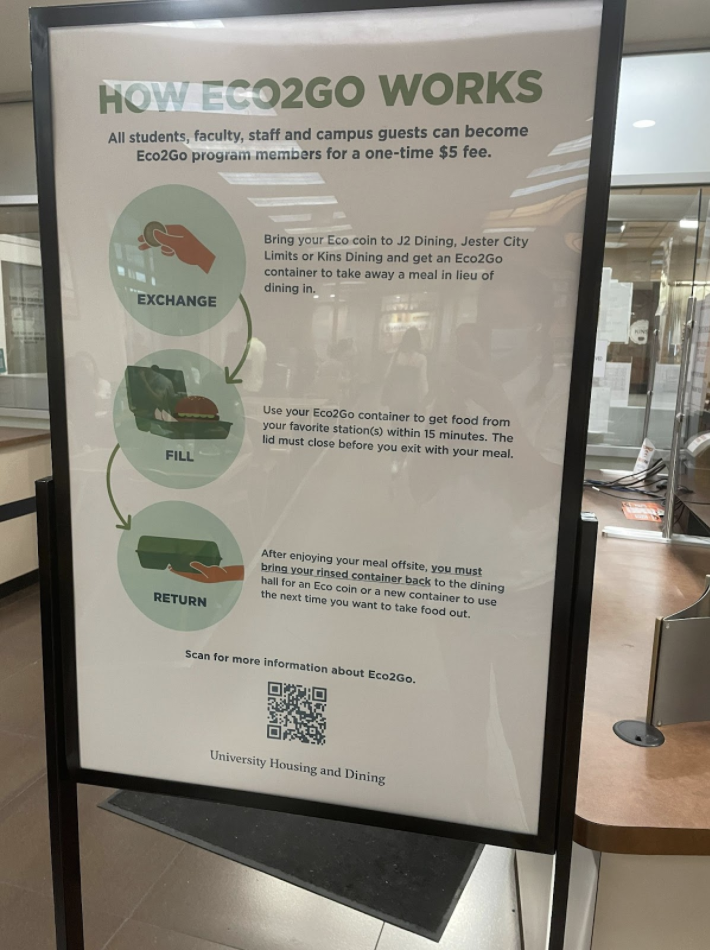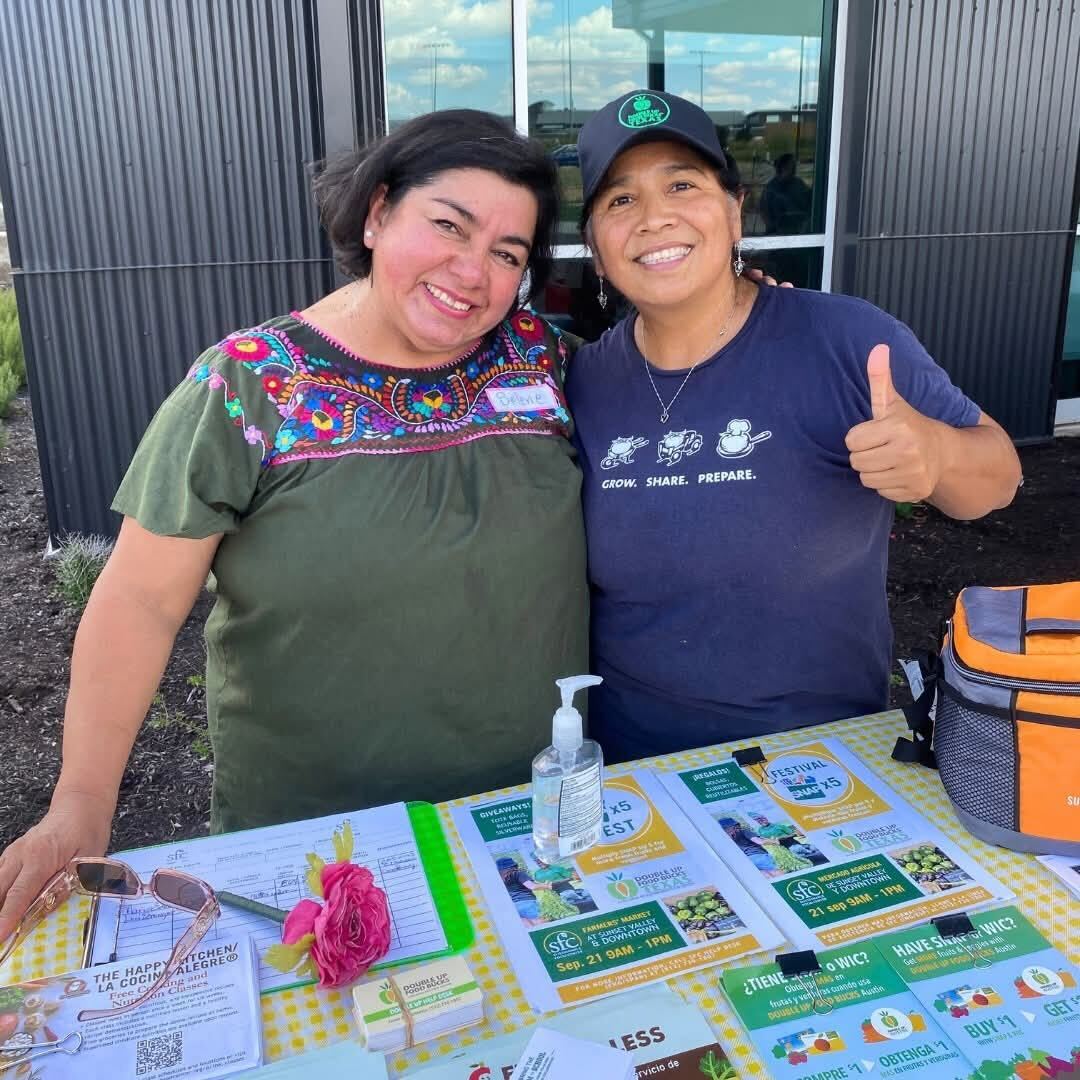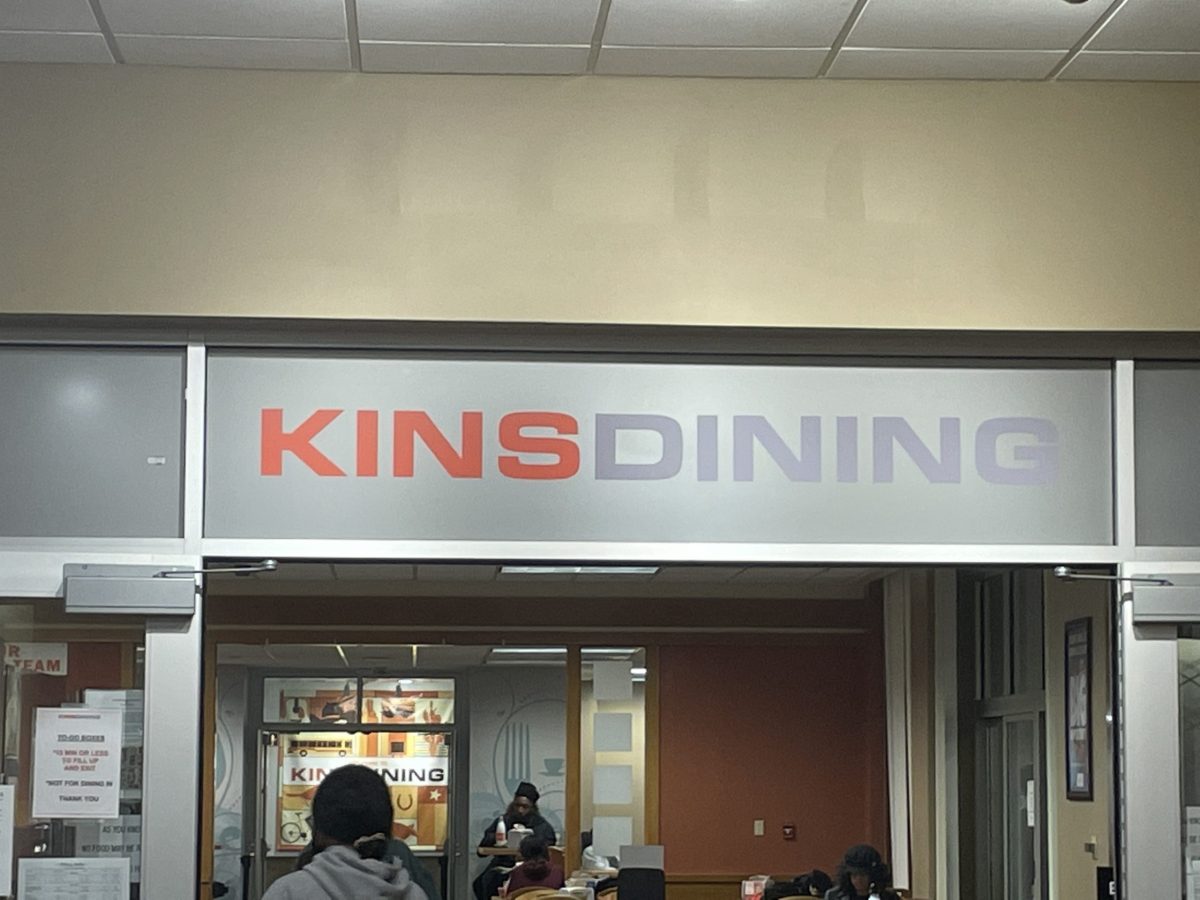Before the first week of October, University Housing and Dining released an email to students who depend on the dining hall for meals about the re-establishment of the Eco2Go program.
The program consists of a more “convenient and sustainable way to take out meals” from the three dining halls on campus: J2, Jester City Limits, and Kinsolving dining. Under the re-established program, students receive an eco-coin and then exchange the coin at the dining hall entrance for a reusable to-go container to fill with their meal of choice. The only downside is that students are charged $7.50 in Dine-in Dollars for each meal they take to-go or each swipe they make at the entrance.

Many students voiced their concerns regarding the new policy because it is $22.50 per day on average with three meals a day. Most students’ Dine-in Dollar plan gives them $300 per semester so students would max out their funds after 13 days using the Eco2go program. So realistically, many students would rather eat in the dining halls without the $22.50 charge a day. With many students opting out of Eco2Go, more students are packed in dining halls, creating the potential for a greater spread of COVID-19.
Freshman Sylvia Tanguma expressed her concerns with the spread of COVID-19 in dining hall settings.
“I started taking the to-go boxes when they were free because I felt safer doing that but also I was keeping other students safe,” Tanguma said. “It turned into a routine for me, and it was nice to be able to eat a meal in the comfort of my dorm.”
Tanguma said that eating in her room was one of the things she would miss the most because she could wind down and watch TV while she ate.
“After I got the email saying how much they were going to start charging for to-go boxes, I panicked,” she said. “I knew the dining halls were going to start overflowing with people, and I would no longer be able to have my peaceful routine.”
Housing and Dining also released an email apologizing for several campus-wide venue closures due to the university being widely understaffed. In addition, several “now hiring” signs are outside of dining halls and restaurants around campus. Housing and Dining’s goal is to advertise to students to apply for a job at these locations due to the lack of service.
Because the university is widely understaffed and more students are now eating in the dining halls, the real question is: How will the insufficient number of workers keep up with the clean-up process to prevent the spread of COVID-19?
During an interview with Mynor Rivera, Director of Dining Operations at UT, he referenced that the Eco2Go program was always $7.50.
“Each student’s on-campus meal plan includes the unlimited meal plan with our three dining halls that are open from 7 p.m. to 9 p.m.,” Rivera said. “The Eco2Go program is supposed to be a convenient way for students to take their meals if they cannot go during normal dinner times because they have a sports practice or a club meeting — it was never meant to be used all the time for three meals a day.”
Rivera said this is more leading into the mission of the University to return back to normalcy.
“You can see we have almost six to seven people on the floor at our dining halls to clean and sanitize the tables after students are done eating,” Rivera said. “We want to make sure our students are safe. We are here to support them.”
































